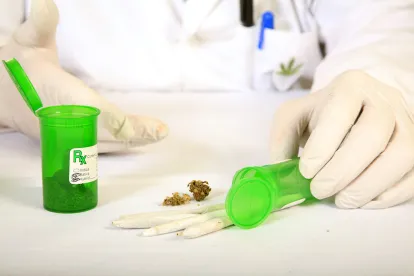On January 23, 2023, the U.S. Food and Drug Administration (FDA) issued its final guidance, “Cannabis and Cannabis-Derived Compounds: Quality Considerations for Clinical Research” (the Final Guidance). The agency outlines current recommendations for drug sponsors developing cannabis and cannabis-derived compounds for use in human drug clinical research. Cannabis and cannabis-derived compounds include botanical raw materials, extracts, and highly purified substances of botanical origin.[i] FDA published the draft version of the guidance in July 2020 and received 60 public comments. Below, we outline key points from the Final Guidance.
Background
-
The Agriculture Improvement Act of 2018 (Public Law 115-334), known as the 2018 Farm Bill, removed “hemp” from the definition of “marihuana” under the Controlled Substances Act (CSA). Now, hemp is not considered a controlled substance. “Hemp” is defined in the 2018 Farm Bill as including cannabis and derivatives or extracts of cannabis with no more than 0.3% by dry weight of the compound delta-9 tetrahydrocannabinol (THC). The Drug Enforcement Administration (DEA) still regulates as Schedule I controlled substances those botanical raw materials, extracts, and derivatives that contain cannabis or cannabis-derived compounds with delta-9 THC content above 0.3% by dry weight.
-
Cannabis and cannabis-derived compounds – even those meeting the 2018 Farm Bill’s definition of “hemp” – are typically subject to the same FDA clinical research regulatory requirements and standards as human drug products containing other substances.
Cannabis Sources and Quality Considerations
-
Sponsors may use cannabis (including hemp) in human drug clinical research if FDA deems the cannabis to be of “adequate quality.” The agency will review quality issues in the context of an investigational new drug (IND) application.
-
Historically, the National Institute on Drug Abuse (NIDA) Drug Supply Program (DSP) was the only domestic, federally legal source of cannabis for clinical research. That is no longer the case. Human drug sponsors may now source cannabis regulated as a Schedule I controlled substance from other DEA-authorized growers.
-
Human drug sponsors should consider the recommendations in FDA’s final guidance, “Botanical Drug Development” (Dec. 2016). Importantly, the agency does not recommend relying on published literature as a substitute for data from a full toxicology program to support drug product development for phase 3 clinical research (and beyond). Dedicated toxicology studies are specifically recommended for 7-COOH-CBD, the major human metabolite of cannabidiol.
CSA Controlled Status
-
When a drug sponsor submits an IND to FDA as part of cannabis-related human drug clinical research, the sponsor should determine the potential controlled substance status of any botanical raw materials, drug substances, and drug products by taking into consideration the delta-9 THC content. The agency encourages sponsors to calculate the delta-9 THC content in the proposed investigational product early in the drug development process and to consult with the DEA.
-
Generally, the delta-9 THC percentage in botanical raw materials is calculated as the amount of delta-9 THC (and THCA) naturally present in a material sample relative to the sample’s dry weight prior to extraction or other manufacturing steps. For intermediates or finished products containing cannabis or a cannabis-derived compound, sponsors should calculate the total delta-9 THC percentage using the composition of the formulation with the amount of water removed (including water contained by excipients). These calculations should not be used for other purposes (e.g., Chemistry Manufacturing and Controls (CMC)).
-
FDA may have concerns with drug abuse liability. As part of the agency’s review of a new drug application (NDA), FDA may conduct an abuse potential assessment. Such an assessment could impact drug product labeling as well as DEA scheduling or rescheduling.
FOOTNOTES
[i] Fully synthetic versions of substances occurring in cannabis (e.g., dronabinol) fall outside the Final Guidance’s scope.




 />i
/>i
